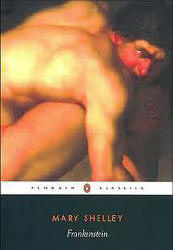Book Review: Frankenstein by Mary Shelley
WEN reading club meet every month
At the end of October we met up to discuss Mary Shelley's Frankenstein. It turned out to be our Halloween read but hadn't been planned that way. Frankenstein was on at the National Theatre at the beginning of the year and two of our regular readers went to see it and both thought it a fantastic production and were really enthusiastic about it. So it went on our reading list and just happened to be October's choice. In terms of whether it fitted with Halloween, there is a short introduction which tells of a few people sitting around entertaining each other with ghost stories and deciding to each write one, this, Frankenstein is the only tale completed, so yes it sort of fits with Halloween now so keenly celebrated.
Frankenstein proved to be a real hit as a reading group book provoking lots of discussion and a hit as a story. The text is not the horror story of films, but much better than that. It tells of a young man growing up quite innocently in idyllic surroundings, then excelling at University where he becomes driven with an obsessive passion to learn something new which leads him to create life, his monster. Horrified at his creation he becomes ill and the monster, entirely innocent of any ill deed but unacceptable to Victor and society runs away and learns to survive. Eventually wanting human contact and spurned by the same he loses all innocence and sets out to revenge himself of the ills society inflicts upon him by hurting he who created him, unless Victor agrees to create a companion, which he doesn't.
The daemon's creator, Victor Frankenstein we considered a weak and moaning character who really could and should have taken more responsibility in the early stages, although this would have prevented the story from taking place, so is weak as a plot device as much as a character. Victor's reactions evoked the feeling of paralysing guilt that we were able to connect to although despite not having created monsters!
The sense of injustice felt by the monster, Victor andd the reader as events unfolded, until the point that all had lost their innocence was both clever and emotive. The experiences of the daemon/monster brought much discussion about the role of nature versus nurture, as Shelley's tale heavily favours nurture, we were reminded of reading Lionel Shrivers 'We need to talk about Kevin' which leans more towards nature.
It is perhaps testament to Shelley's story writing that we talked about highly unlikely events with enthusiasm and in detail for quite some time. Overall it's a book we'd recomend to individuals and other reading groups as it really provoked discussion and it's a play we'd recomend.
If you fancy joining us, take a look at what's coming next: http://www.westealingneighbours.org.uk/WEN-blog/wen-book-club/
Sara Judic
Meet members of West Ealing Neighbours and others at a local tweet-up Thursday 10 November at the Star and Anchor from 7.30pm
09 November 2011
Related links
|
